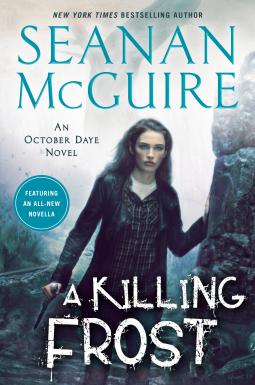The Electric Heir (Feverwake, Book 2), by Victoria Lee (Skyscape)This is a sequel to Fever King, which I reviewed here. Although I loved the premise of magic being carried by a highly contagious, near-fatal virus, and the virus having been unleashed on a fractured United States by a single power-mad man, I expressed reservations about the depiction of the moral consequences of actions, specifically politically motivated murder. Yet the world and its principle characters were powerful enough to linger in my memory, so I decided to give this next volume a try. And in it I found everything I missed in the first book. To be sure, this isn’t an easy, light-hearted read. It’s a brutally honest delve into the abuse of power. And as such, I found the story powerful and emotionally fearless. Lee doesn’t shy away from difficult or distressing aspects of the deep trauma suffered by the victims or the pernicious nature of the way their thinking and reactions become warped as the result of repeated abuse. In all the essentials, The Electric Heir completes and redeems The Fever King.
Calix Lehrer rose to power by first creating magically gifted “witchings” (the few survivors of the plague he himself unleashed) and then defending them against neighboring nations. Now over a century old, he chooses apprentices from the elite Level IV school – but these teens are not merely students, they are the targets of his seduction, manipulation, and abuse. In the first volume, refugee Noam is first overwhelmed by the privilege of Level IV, filled with hero worship for Lehrer, and first repelled and then fascinated by his fellow student, the charismatically beautiful telepath, Dara. In the course of that story, Noam falls in love with Dara even as he comes under Lehrer’s influence, to the point of becoming Lehrer’s assassin. It becomes clear that not only is Dara’s sexual relationship with Lehrer non-consensual because of the disparity in age and power and the impossibility of refusal, but it involves repeated brutal physical abuse, masked over by Lehrer’s healing magic. The book closed with Dara’s escape and likely death.
Now Lehrer has lured Noam into Dara’s place, forcing him through psychological manipulation and increasingly violent physical abuse into a model of himself: ruthless, exploitive, and devious. In short, to become Lehrer’s carbon-copy heir. Noam, like Dara before him, craves Lehrer’s approval at first, although it is unclear how much of this stems from Noam’s youthful vulnerability and how much is Lehrer making himself charming and magically persuasive. As it turns out, Dara is not dead, although he no longer possesses magic; he has returned with an underground cabal with one purpose: to end Lehrer and his international reign of terror. Lehrer has planted a spy in their midst, perhaps more than one. Noam, after an uncomfortable, divisive reunion, insists on remaining with Lehrer as part of the plot – even though it puts his sanity and his very life at risk. Meanwhile, Lehrer launches a pre-emptive strike against the neighboring nation of Texas, using weaponized magic. As Noam and Dara separately and together come to terms with both the overt and the subtle effects of abuse, it’s a race against time to stop Lehrer.
It’s a high-wire act to portray slow, intense, personal change and fast-paced action at the same time. Lee deserves immense credit for not abbreviating or minimizing the painful process by which Lehrer’s victims peel back the layers of guilt and shame, discarding the excuses born of what their abuser has led them to believe about themselves. This second volume fully addresses my concerns about the first with courage and compassion. It’s definitely not the place to start the story, but neither is the first book the place to stop. I’m glad I gave The Electric Heir a chance to take me with Noam and Dara in their journey into darkness and the emergence of hope.








